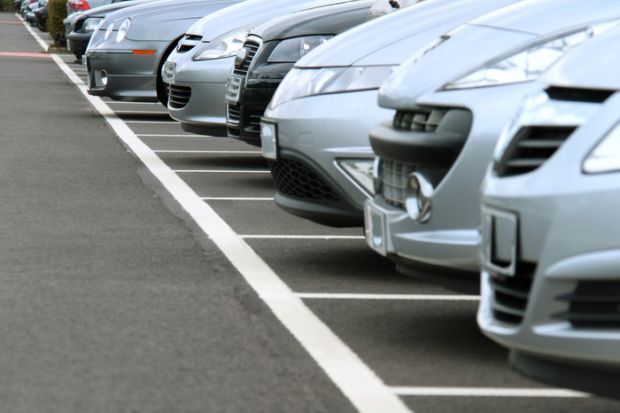Despite the move towards green commuting on many university campuses, driving around each day struggling to find a parking space may still be a daily reality at many institutions, especially those in rural locations or more car-dependent countries.
But luckily, some academics in the US have come up with a model that optimises parking spaces for staff and students by timetabling classes to make the best use of the space available.
Using the University of Louisville in the US state of Kentucky as a case study – a campus where more than 70 per cent of staff and students normally drive, according to a 2018 survey – the researchers set out to compare current class timetables with the availability of spaces.
They found that parking demand could be predicted by looking at class schedules, especially once the average time that staff and students may spend on campus before and after classes was factored in.
Using these data, the researchers then built a model that produced the optimal timetable to make best use of the parking facilities, finding that the current supply of 3,441 spaces could be cut by 30 per cent if classes were scheduled differently.
The paper, published in the International Journal of Sustainability in Higher Education, says the results show that class timetabling can be used as a way to ensure that parking space is used more sustainably, with the model able to be adapted to changes such as the move to more online learning during the pandemic.
“Almost all parking supplies on the UofL campus are asphalt parking lots,” says the paper, by Sumei Zhang, associate professor in Louisville’s urban and public affairs department, and Emmanuel Frimpong Boamah, assistant professor in urban and regional planning at the University at Buffalo.
“This type of parking facility requires a large land area, increases the impervious surface areas on campus and contaminates surface runoffs due to the chemicals…contained in the coal-tar emulsion seal coat used in asphalt parking lots.”
The paper adds that by minimising parking supply, cost savings can be invested in other strategies “such as campus biking programmes, public transit programmes (free bus rides) and increased incentives for those participating in shared mobility programmes”.
One catch might be that the optimisation model for Louisville suggested that many classes should be rescheduled for 7am or the late afternoon, with Fridays used much more than previously, something that might not be welcomed by all staff and students.
Dr Frimpong Boamah said the model could be adapted to take account of “potential pushbacks” among students and staff over the suggested class times as well as “other political factors”.
However, he added, although this was possible, the challenge was “whether campuses are ready to have a more open and transparent dialogue around how parking and other transportation decisions are made to ensure a more sustainable campus environment.
“Perhaps, parking should be part of our conversations on how we are envisioning our post-Covid college campuses.”
Register to continue
Why register?
- Registration is free and only takes a moment
- Once registered, you can read 3 articles a month
- Sign up for our newsletter
Subscribe
Or subscribe for unlimited access to:
- Unlimited access to news, views, insights & reviews
- Digital editions
- Digital access to THE’s university and college rankings analysis
Already registered or a current subscriber? Login







